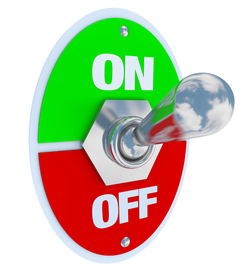 When it comes to the discipline of writing, there's a lot of talk about showing up. Butt in chair. Schedule the time. Keep your dates with yourself. All of this is good advice, and the most successful and prolific authors have the disposition or the drive or the self-governance required to stay the course on the long and arduous journey of writing a book, or multiple books.
When it comes to the discipline of writing, there's a lot of talk about showing up. Butt in chair. Schedule the time. Keep your dates with yourself. All of this is good advice, and the most successful and prolific authors have the disposition or the drive or the self-governance required to stay the course on the long and arduous journey of writing a book, or multiple books.
What we less often talk about, or hear about, is the degree to which our energy impacts our writing sessions, or how much power we have to sway our own energy to be better and more prolific writers. As a runner, I liken the experience of writing a book to my running practice. And you might compare it to any practice you have that requires persistence and time and commitment. What I know to be true of running is that there are days when I'm on and days when I'm off--and my best days have rarely been predicted by the quality of my energy prior to my workout. What I mean by this is that I've often gone to a workout feeling completely exhausted or depleted, feeling like I didn't have it in me to do the run, and then surprised myself by how much I was able to rally, how much reserves were there for me to access.
The takeaway here for writing is that we can't and shouldn't try to predict, based on how we feel, how good a given writing session is going to be. It also behooves us to remember that we need to set up conditions that will foster our success. I encourage my writing clients--just as my running coach encourages me--to warm up. It's not a great idea to go out and run even a few miles without a warm-up of some kind. And the same is true of writing.
Consider a vigorous writing session you're about to embark on, even if it's the anticipation of four or five hours set aside to dive in. You might ask yourself before you start, Where do I land today? If you keep a writing journal, answer the question and let yourself free-write for a while to see what's there. If the energy you're bringing to the session is positive, make a couple notes and then go for it. Then, if things turn negative during the writing, create space for yourself to take a break, to get up and go for a short walk, or to turn your attention to another writing exercise--like your free-writing--for the specific purpose of clearing energy. Do not turn to email or social media.
We have way more control over our personal disposition than most of us think we do. I'm sure you know well the experience of going from feeling elated to pissed off in two seconds flat--generally prompted by something or someone, like other drivers. But the opposite typically feels less accessible. To go from feeling contracted and angry to engaged and open requires a willingness to let go, to clear what made you contracted and angry in the first place, or what's keeping you there. Toddlers are very good at doing this because they're not invested enough in their anger to hold onto it, so they fluidly move to happiness when enticed by something more interesting than the thing that sent them into a tantrum.
We still have access to that fluidity. And being able to move on from negative emotions, or to let them go, or to park them someplace--like in your journal--is a skill to practice. Our energy (and therefore our mood) is not something that happens to us, or that's put upon us. We have agency to create change within ourselves, even to shift our mood on a dime--just like a toddler. It may feel weird, like we're supposed to hold on and wallow in our self-imposed hardship, but we don't have to.
Allow yourself to engage with your energy, and don't deny the truth of your experience when you sit down to write. If you feel mad, see if you can name it; if you feel happy, acknowledge that. Naming what's there is the first step toward being able to clear what needs to go and being able to harness what's there to support you, to see you through this project and the next one and the next one after that. Good luck!
